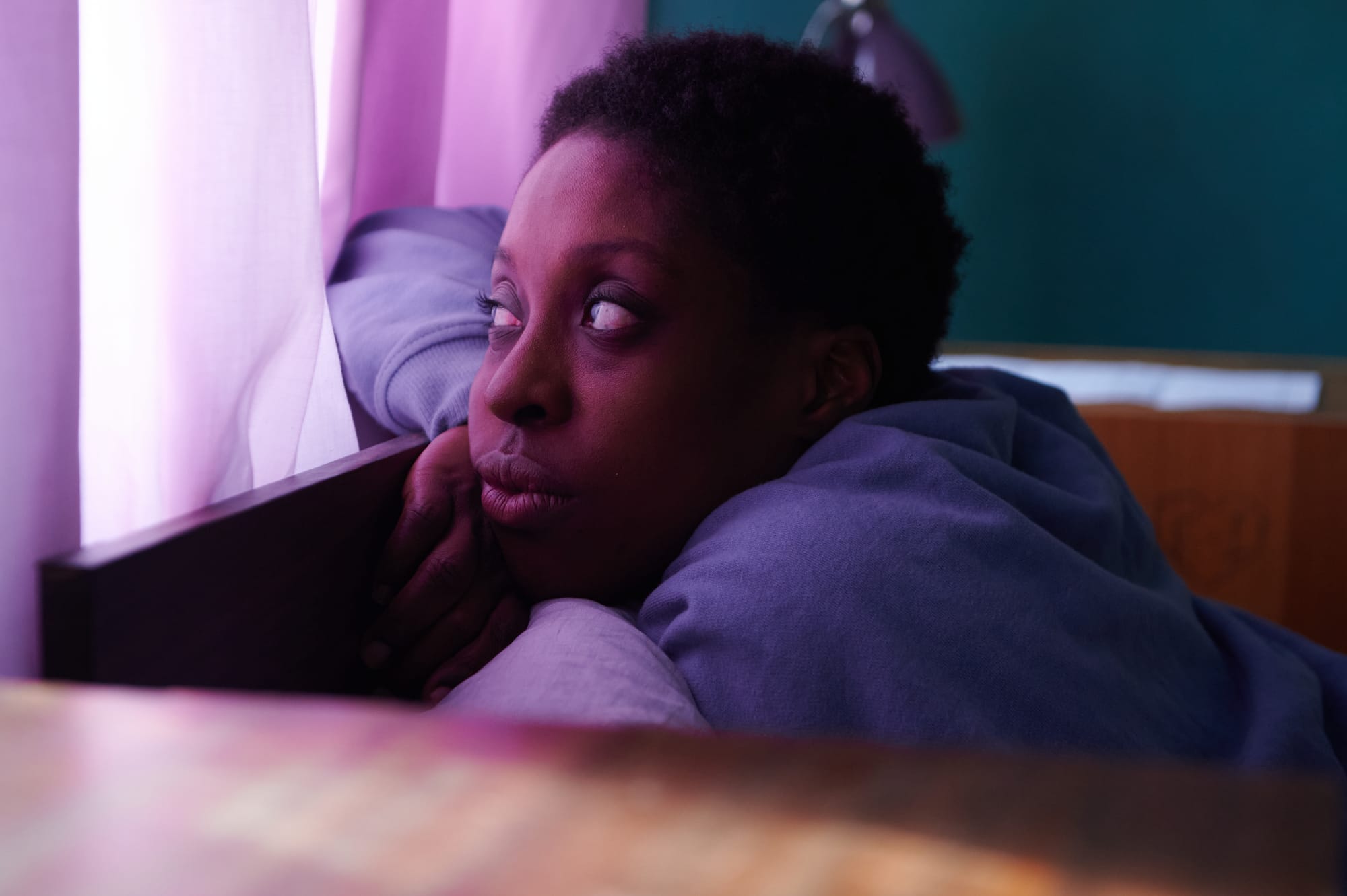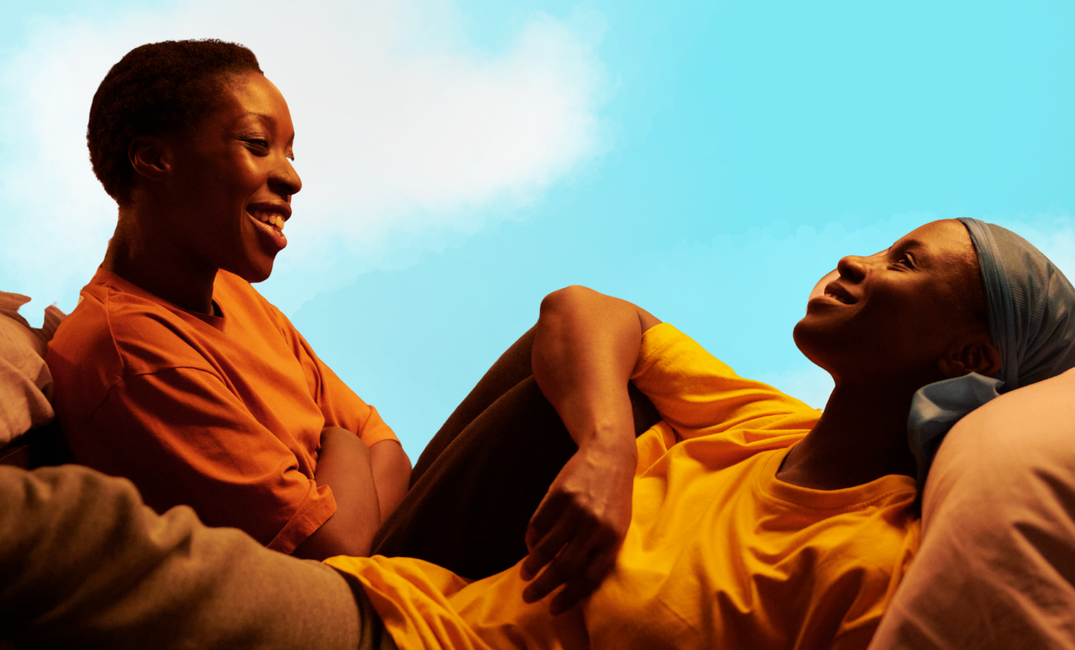Banseka Kayembe
We’ve heard a lot in recent months about immigration detention centres and so-called “asylum seeker hotels”, often through the noise of unhinged political debates and visceral protests. After a summer marked by deeply charged, and often worrying demonstrations and rhetoric around migration, Dreamers feels like it has arrived at exactly the right moment.
Recently released at the BFI Film Festival, it follows two Nigerian migrants Isio and Farah, daring to imagine a vibrant future beyond the confines of a British immigration removal centre. It’s a story about hope, love, resistance, and dreaming, even when freedom feels impossibly far away.
I spoke with the film’s director Joy Gharoro-Akpojotor to unpack the inspirations behind Dreamers, its political urgency, and what it means to tell stories about migration with care and imagination.
Naked Politics: Dreamers feels like a really realistic portrayal of an immigration center. What kind of research did you do, or experiences did you pull from to get an understanding of those types of spaces?
Joy: The processing I knew about because I had been through it myself, so I knew how it all worked. I also spoke to people who had been detained, not just in the UK, but in other countries as well. I also went to a Friend of Yarlswood meeting as well [ a scheme that provides emotional and practical support to people currently detained in Yarl’s Wood IRC and post-detention]
We want to keep our journalism independent, people powered, with no paywalls and away from big corporate and billionaire funders- but we need your help!
Please consider becoming a subscriber or making a one off donation, for as little as 99p
All of that stuff really helped to give an idea of what the space is like, in terms of how the officers treat you, what the guards, I would say, how the system treats you, and, you know, just the texture of the world as well. Obviously, we took some creative liberties here and there, but I think for me, it was important to create a world in which the women were always at the front and the men or the guards were always more in the background.
Everyone I spoke to always said they didn't trust the guards, and the guards are just there to get information from you; I think that's what you find in most enclosed systems. It was important to me to have these guards who don't really say much, or at least when they do talk, they talk quite systematically. With the opening scene of Dreamers, the guard is just reading off something she clearly says all the time to everyone, it's just part of a whole spiel. The guard doesn't really care about your name, none of that stuff.
Naked Politics: You do get a feeling in the film of surveillance, a feeling that the detainees are being watched all the time, showing the viewers all the CCTV etc. I think maybe a sort of paranoia is deliberately imbued in the film.
Joy: That was the idea, to create the space almost like the walls have ears. We were trying to create that prison-esque vibe, because I think most of these places are quite prison-like. The whole idea is that you can't leave, and people are watching you.
Some of the things that people said in the [research] interviews included stuff like “suicide watch”…the guards if they think you’re at risk might put you on suicide watch, where they just sit there and watch you. It's so discomforting, that idea of constant surveillance, for example they come into your room when they want to come into your room.
But equally within that surveillance Isio and Farah find a space in their room to create a love story for themselves. They find pockets in which they can talk, and in which they can formulate plans. I think when you are in a place like that, you always find your little like, “okay, we can go here, we can go there. We can do this. No one's coming here.” Do you know what I mean?
Naked Politics: Yeah, one of the characters says that “there's more of us than there is of them.” You know this idea of actually, we get together, we can, we can do something, because we actually outnumber the guards.
I deliberately didn't look into the film too much before I watched it; I knew it was a story about migration, but I was pleasantly surprised to realise it was fundamentally a love story. How do you find the balance between intimacy and the politics of migration? The political climate we're living in at the moment is highly charged around migration, particularly those seeking asylum. Was it difficult to reconcile all of that in your head when you were making this?

Joy: I was really conscious about the story I wanted to tell, it's a love story… I wanted people to fall in love with them, for it to just be seen as a love story, and then to laugh at times and then question themselves. Like, “am I allowed to laugh? Oh, my God, that's funny. Should I laugh?” And also, I think question your own bias, because I think sometimes people look at immigrants and they're like, “Oh, you poor person”, and they kind of take away that person's agency, and they don't allow you to just be a person that has feelings. And I wanted to just remind people that, hey, everyone, people fall in love. People make bad decisions. People make good decisions, and sometimes the right thing isn't the right thing, and sometimes the wrong thing is the right thing, and vice versa, because that is just how we live our lives as humans. So it's really digging into the humanity of what the story is.
Nobody chooses to just go to an immigration center or asylum hotel, to just lock themselves in there or like to check in, I think we have to ask ourselves deeper questions, and the answer cannot be just protesting immigrants coming over. I think the answer has to be to look at your own government policies. Look at the choices that your Government is making, not just at home, but also those abroad that affect people coming.
Look at how your government is interacting with certain countries like. Sometimes I think about the amount of interest they've got to pay a loan to a Western country, for instance, which, in turn, is making their country poorer. And all these things affect people over there, coming over here.
Naked Politics: Do you have any advice for young filmmakers or writers, particularly for those who do want to make politically conscious work. There’s a balance to strike between wanting to write a story about politics, but also a human story about people.
Joy: I think as cheesy as the sound, humanity is political. I think in our everyday life, the life that we live is political. So I think any story you want to tell, just start with thinking “who is the person in it? Who is the person that is going to tell that story as, like, your lead character”? and then start with understanding what their journey is, what they're going through.
Because I think that as long as the fabric of your world is political, you haven't got to make it that person's ongoing journey throughout. I think you can have somebody moving through a political world, and you can have outside forces always, like, pushing in. The world is political, and actually it's about who your character is and how they move through that political world.
Dreamers is in UK Cinemas from 5th December
Thanks for reading our article! We know there's power in people and really appreciate everyone who reads our work.
Give us a follow on Instagram and TikTok to see more of our independent journalism.

